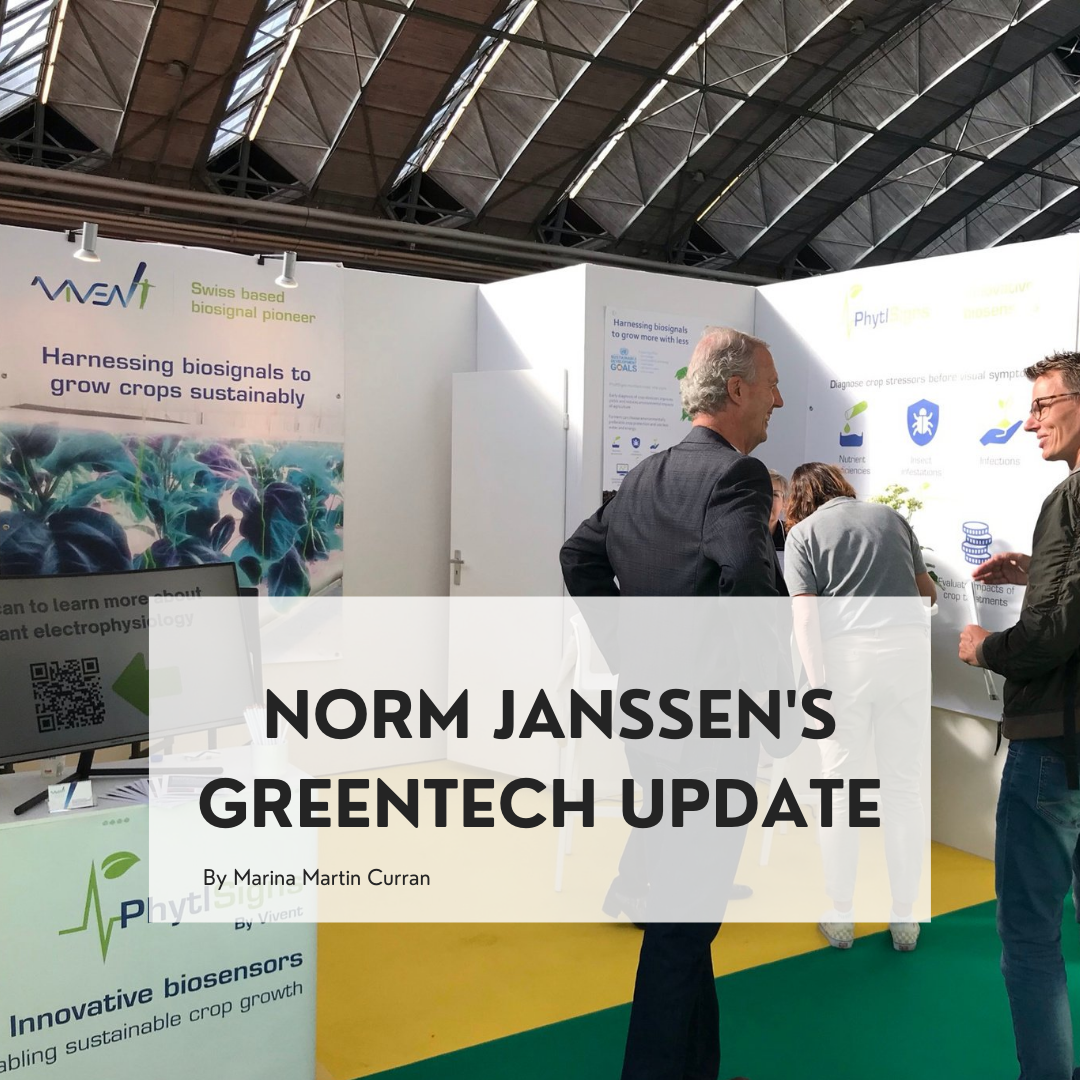Q. Hi Norm, tell us a bit about yourself.
A. I’m a resident of Calgary and have had a long career in agriculture in Canada, working as an extension officer with livestock and crop farmers.
In 2020 I made a connection with Vivent, a Swiss based deep tech company working in the ground-breaking area of plant signalling. I was immediately interested by their approach to working with greenhouse growers. I know from my years of working alongside this industry how there is a real appetite for technology to support increased yield and reduction in inputs. For the last year I’ve been working as a business development consultant for Vivent supporting them to make connections in the horticulture sector in North America.
Q. We heard you went to GreenTech in Amsterdam in the fall, tell us what’s happening in the industry? What’s new?
A. Last fall I was fortunate to attend GreenTech as part of my role with Vivent. It was the first in-person trade show in a while and while the event was not as big as in previous years, there was a great atmosphere as people were happy to be able to meet again.
I observed that the greenhouse industry is undergoing a global expansion, from what was a relatively niche sector, greenhouses are popping up all over the globe in a bid to cope with uncertain weather patterns. Food security, reducing pesticide use, and other aspects of sustainability are major drivers for growth in the sector.
Controlled environment growing including vertical farms is growing rapidly and new learnings and technology in this segment are developing and changing rapidly.
The industry is looking at new crops and varieties that can be grown indoors, there are dozens of tomato varieties, and everything from cannabis to vines is being grown indoors.
Consumers are wanting and expecting better tasting crops as well as better crop safety through the reduction in synthetic pesticide and fertiliser use.
The Dutch greenhouse industry is very coordinated, and many companies cooperate particularly when taking their technology overseas.
Managing energy is a major issue as energy costs increase – the Dutch sector has seen huge hikes in gas prices which means that there will be dramatic changes in how greenhouses operate and are built, for example by fitting solar panels and heat pumps.
A global issue that was discussed extensively, is the availability of labor, to a certain extent this is driving automation in the sector.
There are ever more sophisticated systems for monitoring climate inside greenhouses and controlled environment agriculture. These systems are of interest to companies with allied technologies that can be integrated into their dashboards so as to offer the grower a 360 view of their installation, without the grower having to view multiple dashboards each morning.
All in all, Greentech was an energising experience, greenhouse growing has a bright future in an uncertain world.

